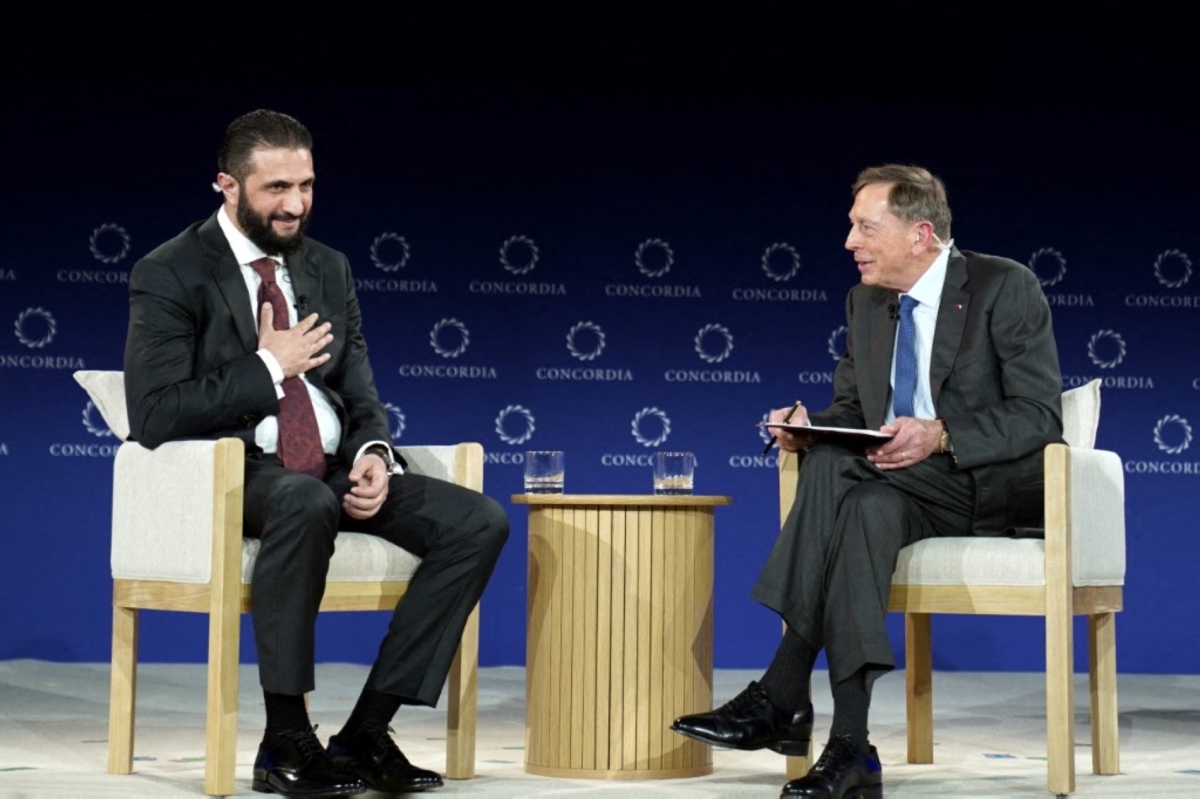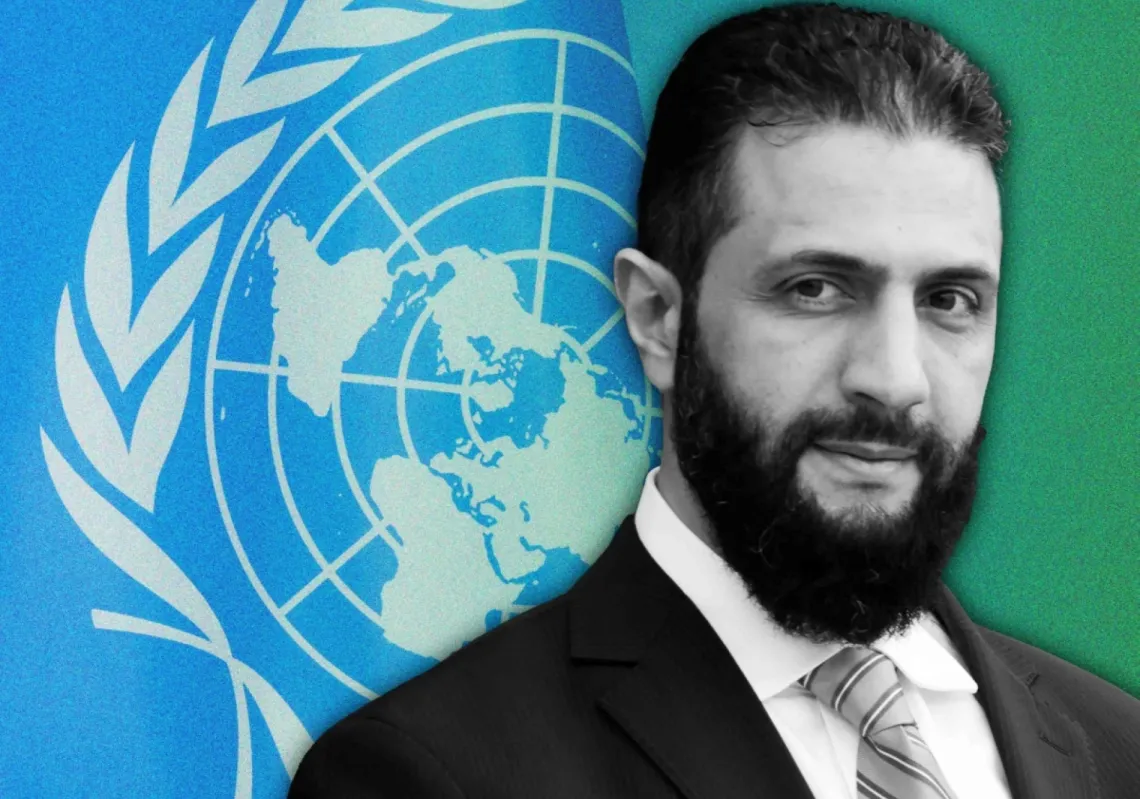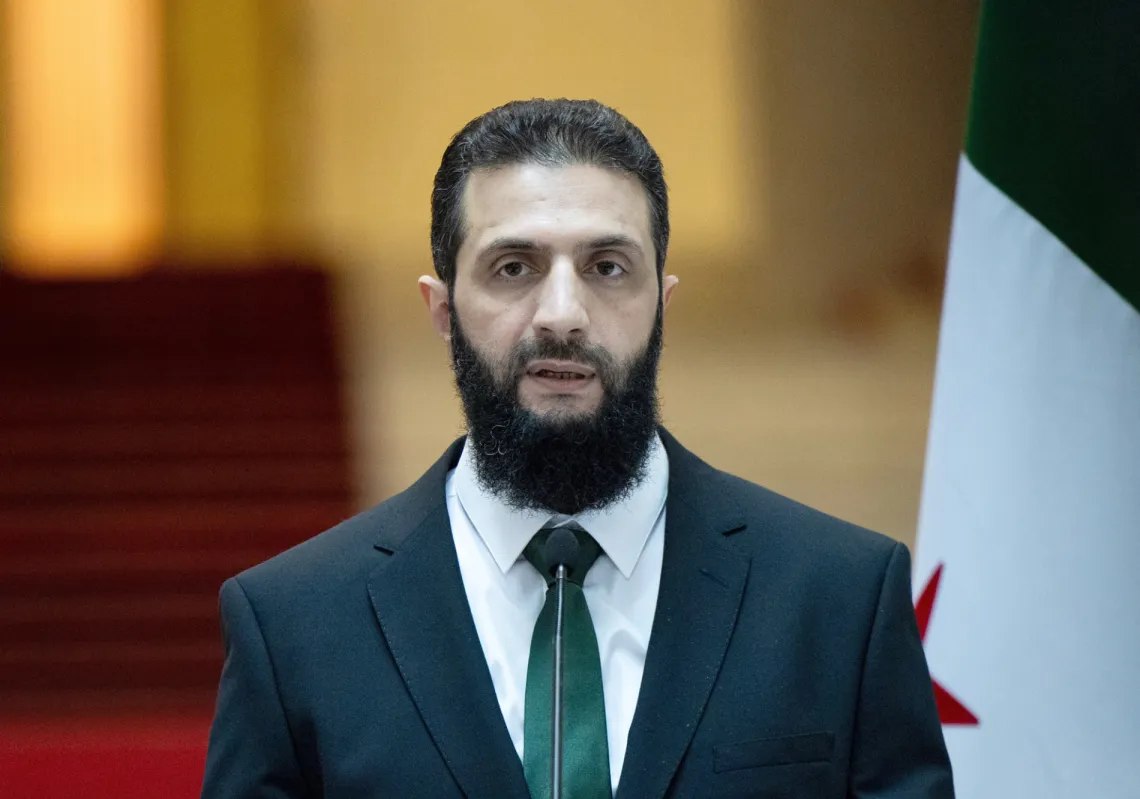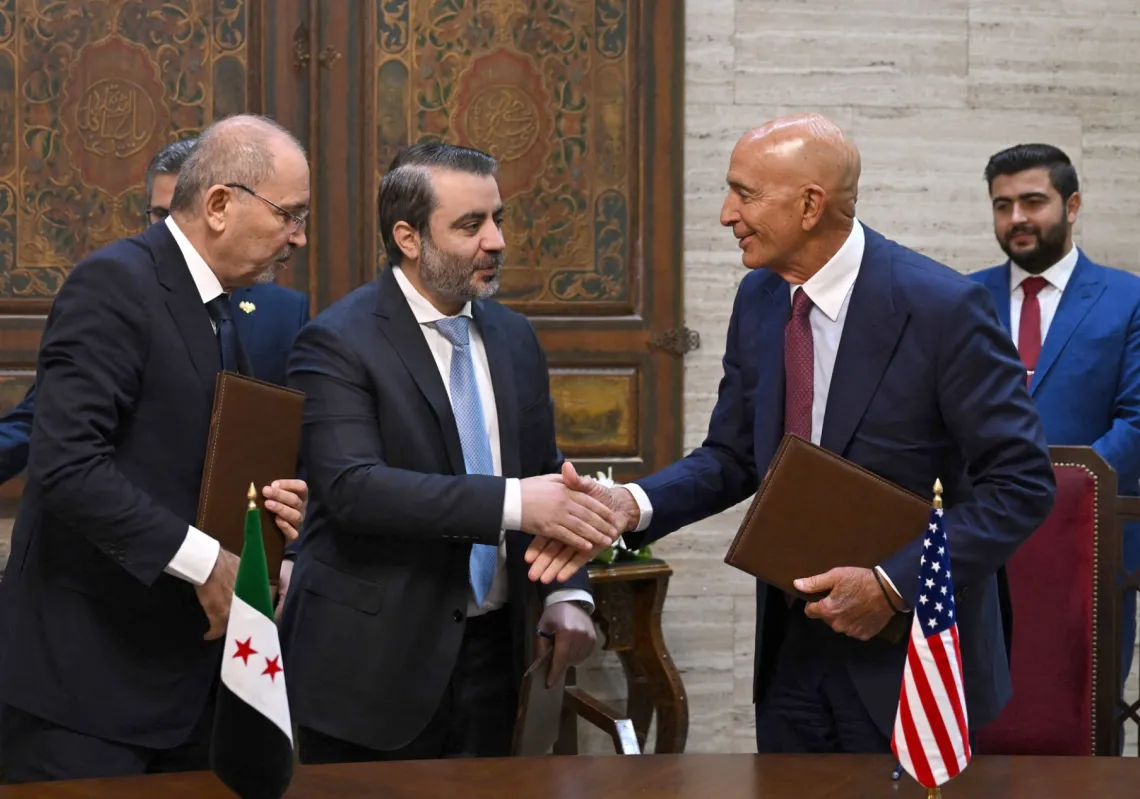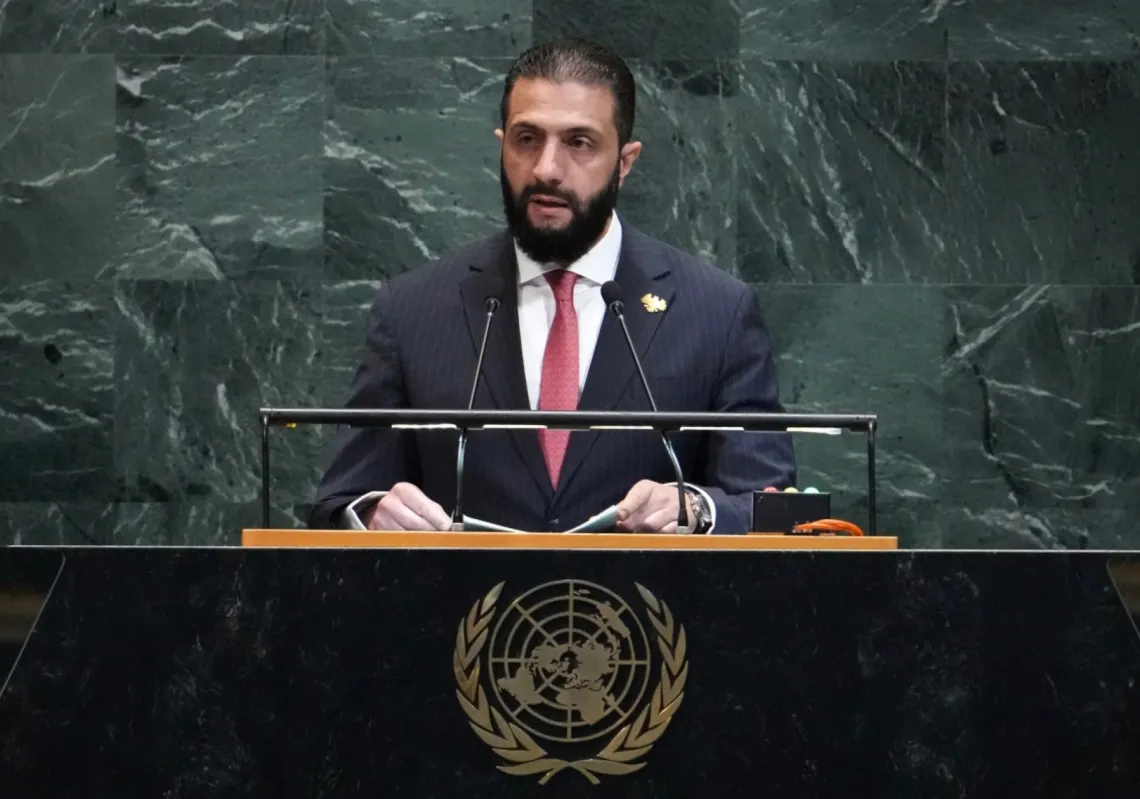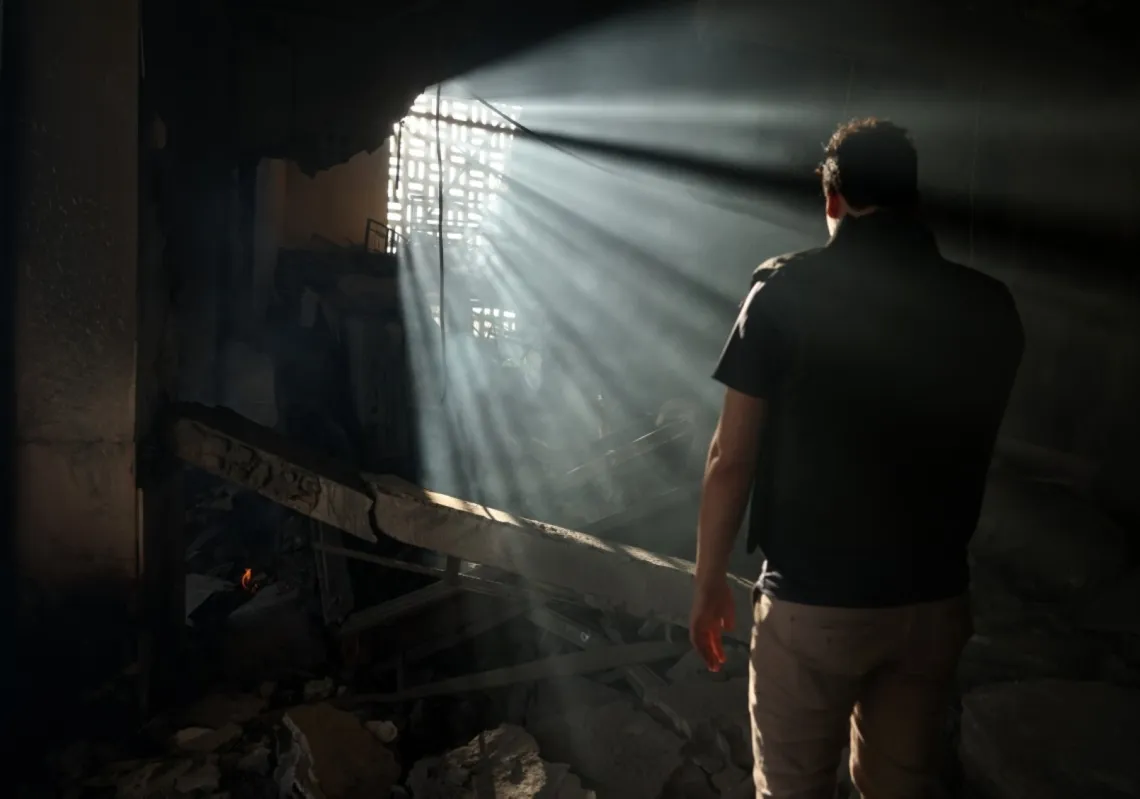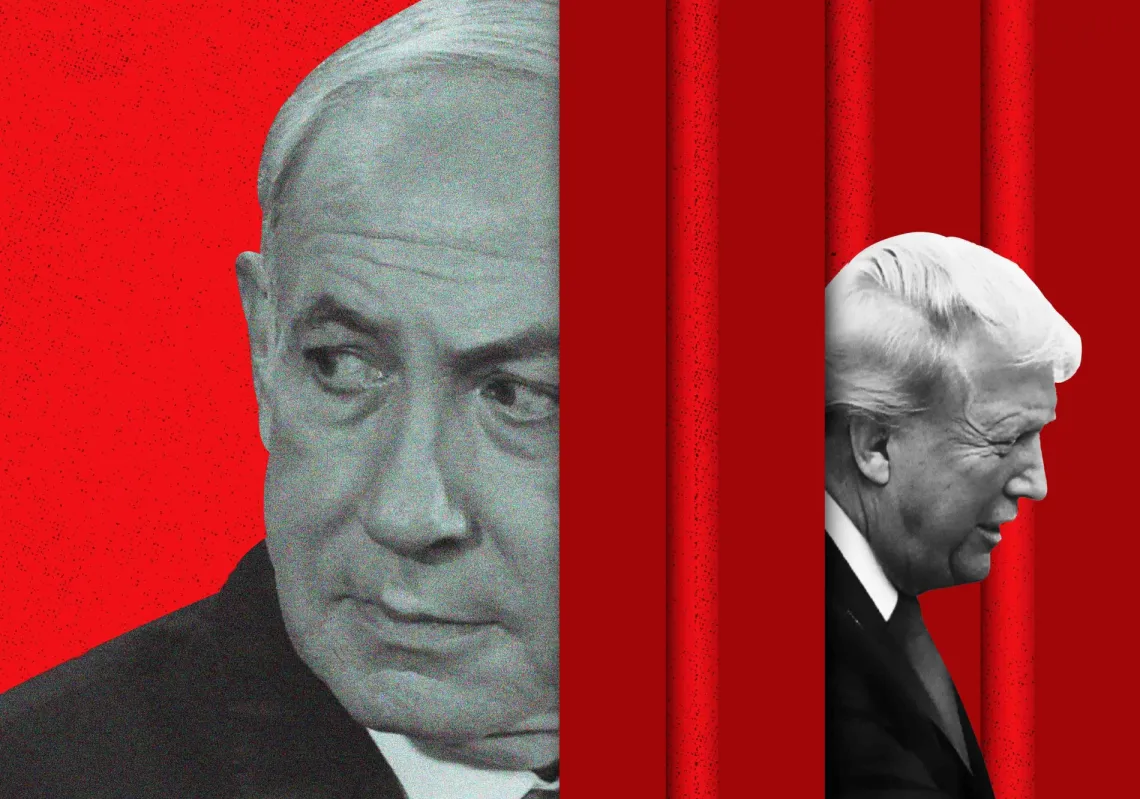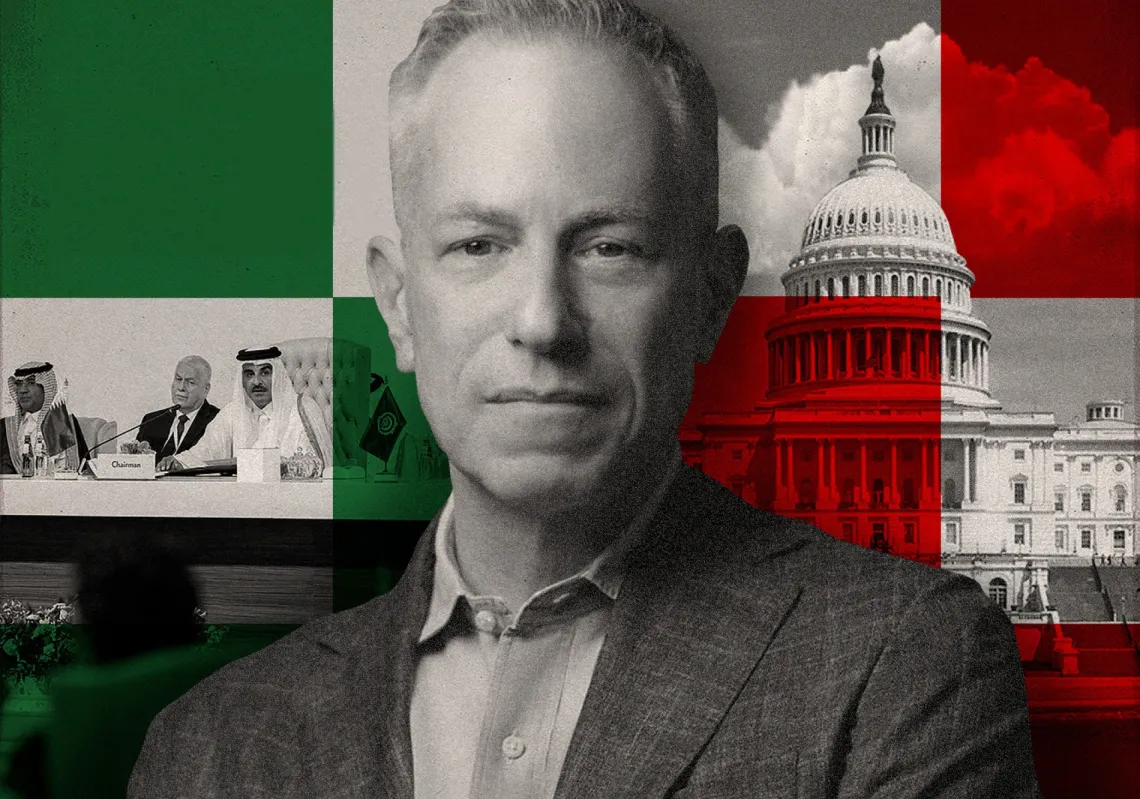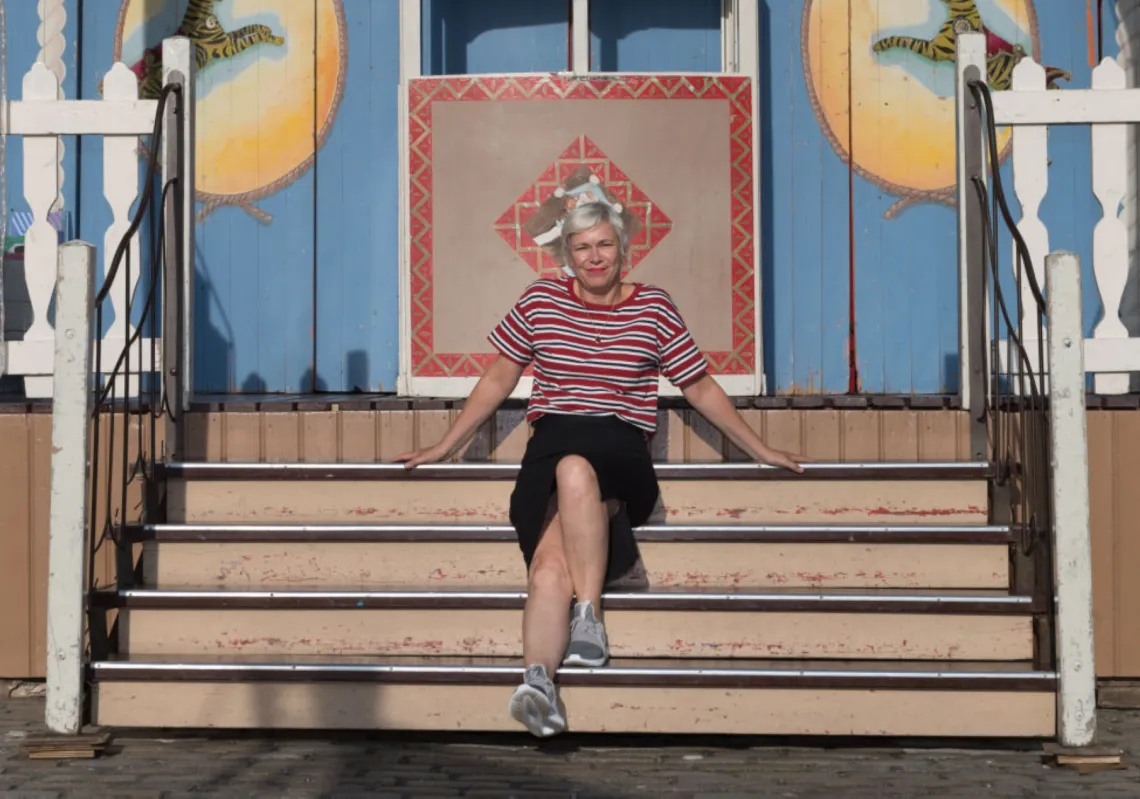Last week, the United Nations opened its high-level general debate at the General Assembly, drawing presidents, prime ministers, and foreign ministers from around the world to address pressing challenges. It was not only the start of another UN General Assembly (UNGA) session, but also a historic milestone: the UN’s 80th anniversary. It was also a moment that illustrated gridlock across the international community over pressing issues such as the never-ending wars in Gaza and Ukraine, climate change, and inequality.
Amongst the attendees filtering in and out of the United Nations Plaza and manoeuvring their way across midtown traffic was a new delegation in the mix—one that added a historical marker to the week. Surrounded by his team, composed of former Syrian opposition fighters, civil society leaders, and academics, was Syrian President Ahmed al-Sharaa.
His very presence in New York was a watershed moment. Until last December, al-Sharaa was better known by his nom de guerre, Abu Mohammad al-Jolani, the commander of Hay'at Tahrir al-Sham (HTS)—a militant group long designated a terrorist organisation. As recently as last year, al-Jolani was appearing on the back of a motorbike in Syria’s Idlib province, then the last remaining bastion of anti-Assad control.
Within months, he toppled Bashar al-Assad in a lightning offensive, traded his combat fatigues for tailored business suits, and reinvented himself as a pragmatic statesman. For years, the US had a $10mn bounty on his head and sought his arrest. Now, he was entering the halls of the UN as Syria’s president after over half a century of brutal Assad rule, shaking hands with world leaders who once branded him an irredeemable extremist.
'I am your fan'
Al-Sharaa’s transformation dominated the storylines of the 80th UNGA. His first public engagement came at a Concordia Summit panel, where he was interviewed by none other than General David Petraeus, the former US Central Command and CIA director who had once directed the fight against HTS. Petraeus did not shy away from the irony: “We were on different sides when I commanded the surge in Iraq. You were detained by US forces for five years... and here you are now as the President of Syria." He also said al-Sharaa had “many fans” and that he was one of them.
Days later, al-Sharaa delivered the first speech at the UNGA by a Syrian president since 1967. The symbolism was profound. It’s estimated that almost 5,000 Syrian-Americans travelled from all over the United States to gather at Dag Hammarskjöld Plaza to fly the three-starred revolutionary flag—now adopted as the official flag of Syria—and chant celebratory songs and dances as al-Sharaa and his delegation entered the United Nations a block away.
For their part, US officials, including Ambassador Tom Barrack, Morgan Ortagus, and Congressman Joe Wilson, attended side events and engaged in direct meetings with the delegation on issues such as justice and accountability, free and fair elections, and Syrian autonomy against foreign interference, including that of Israel.
Al-Sharaa and his government sought to frame the UNGA week as a major win for Syria on the international stage. This framing was certainly boosted by Petraeus's comment that said he was a “fan” of al-Sharaa and that his intelligence agencies were proven wrong about HTS as an enemy of the US.
Fast forward to today, and al-Sharaa was mingling with President Trump and his wife, Melania, on the sidelines, as well as Ukrainian President Volodymyr Zelenskyy and President Emmanuel Macron.
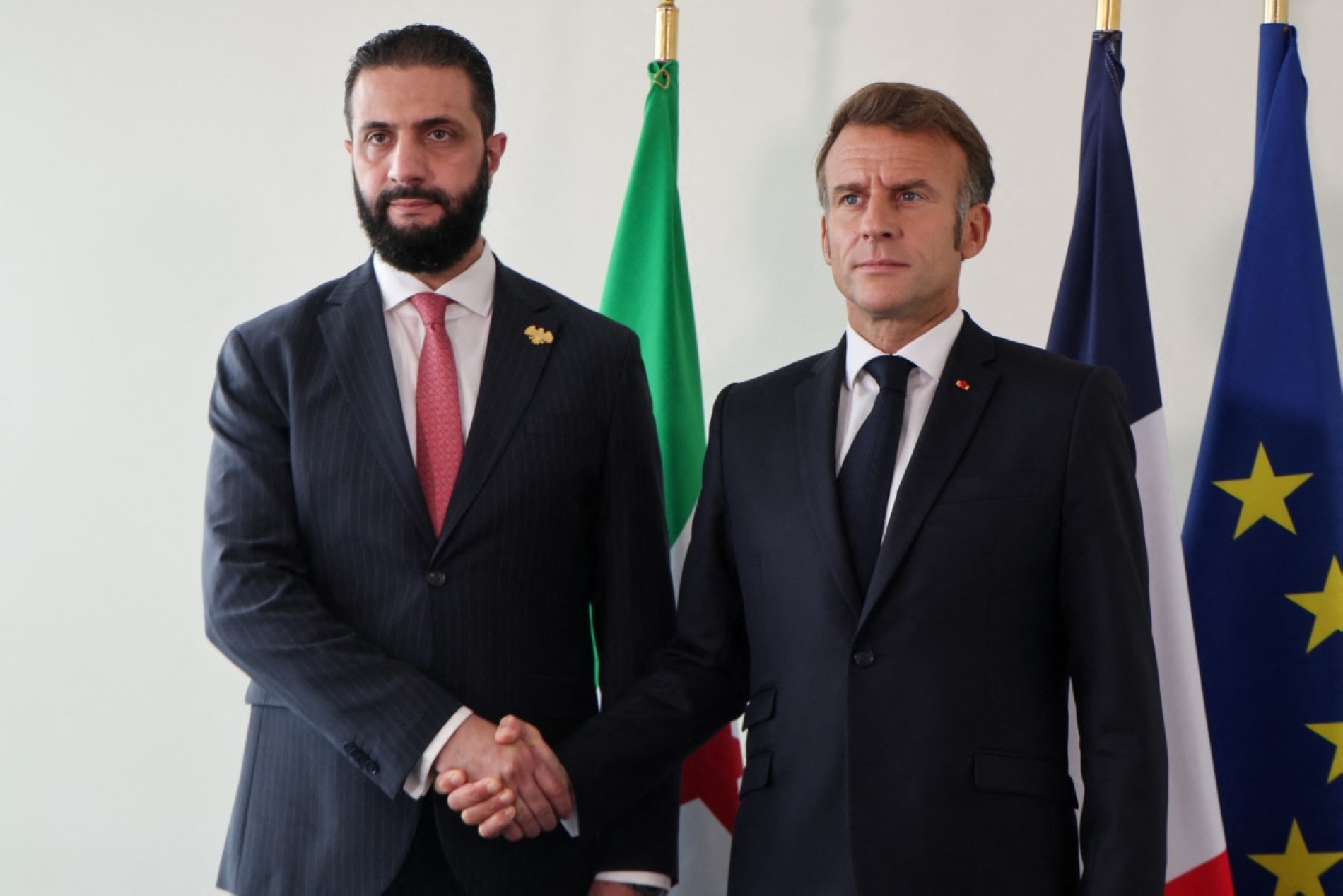
Washington remains icy
But this acceptance was notably absent in Washington's policymaking chambers, where Trump’s April 2025 decision to lift all sanctions on Syria—announced earlier this year in Riyadh—remains deeply contested in Congress.
Just weeks before the UNGA, influential lawmakers, including Senator Lindsey Graham, introduced bills to condition or slow-roll sanctions relief. Instead of repealing the Caesar Sanctions Act wholesale, Graham’s proposal sought partial relief tied to benchmarks on human rights and security. Others, such as Rep. Mike Lawler, raised concerns about normalising ties with a leader whose past included leading a jihadist group responsible for violence against US allies. The result: fragmentation across both parties and hesitation about embracing Syria’s new chapter.
Understanding the uphill battle Syria faces in this regard, Foreign Minister Asaad al-Shaibani and other key officials frontloaded the UNGA week with a day of engagements in Washington, DC, where he spent most of his time in the halls of Congress, engaging with both supporters and sceptics of sanctions relief efforts, such as Congressman Joe Wilson and Senator Lindsay Graham.
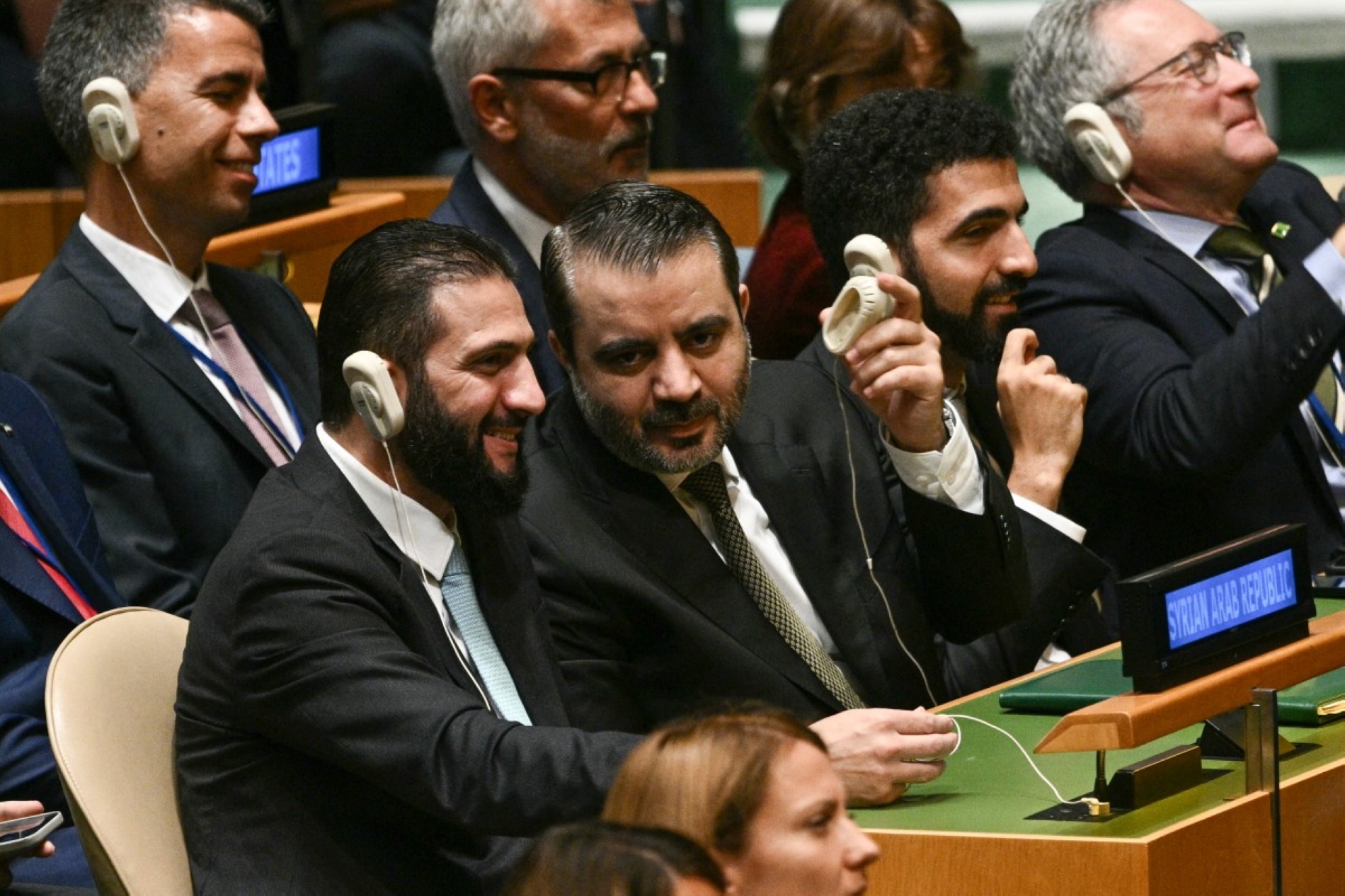
Change in tack
The setback in sanctions relief efforts also altered the tone in al-Sharaa’s rhetoric about economic recovery. Pivoting from a strategy of convincing Western partners of his pragmatism, commitment to international principles, and the need for change, he instead argued that the international community had a moral and ethical responsibility to lift sanctions on Syria and play an active role in the country’s economic post-war recovery.
This shift was well on display in an interview with CBS News’ Margaret Brennan, where al-Sharaa noted that “I believe the world must not be complicit again in the killing of the Syrian people by slowing down or preventing the lifting of sanctions and preventing them from reconstructing their nation. Anybody who stands against the lifting of sanctions would be complicit in killing the Syrian people once again.”
Yet a shift in rhetoric, a day of in-person briefings on Capitol Hill, and a week full of high-profile engagements at the UNGA may not be enough for the Syrian administration to reach its goal of full-scale acceptance and sanctions relief. The Syrian government faces a legitimacy crisis both at home and abroad. While al-Sharaa’s UNGA engagements are intriguing to many, the proof will be in the pudding to see whether this can translate into tangible benefits for Syria.


